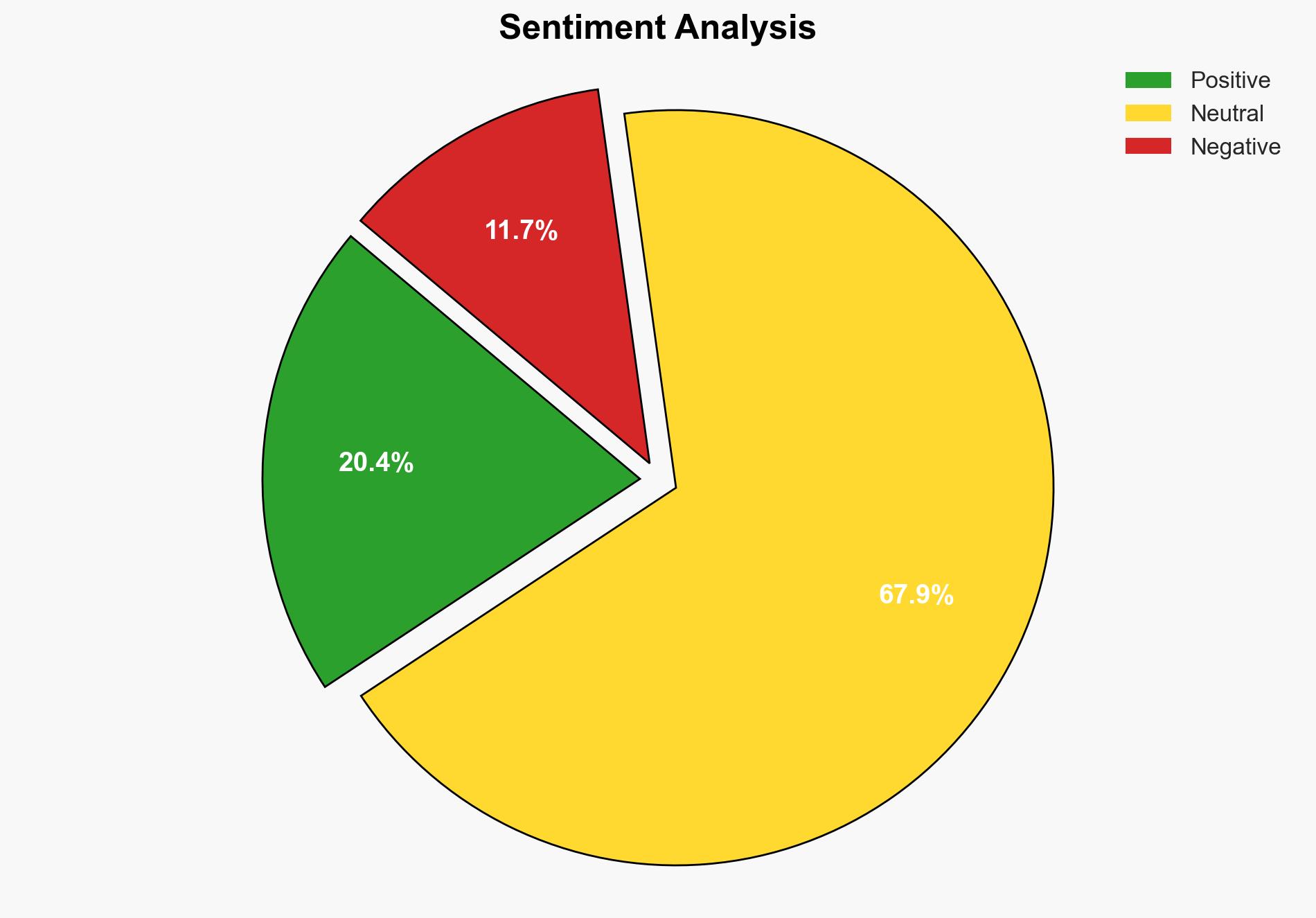Education for Democracy Agreement on Conservation of Marine Biological Diversity among Several Resolutions Adopted by General Assembly – UN News
Published on: 2025-03-04
Intelligence Report: Education for Democracy Agreement on Conservation of Marine Biological Diversity among Several Resolutions Adopted by General Assembly – UN News
1. BLUF (Bottom Line Up Front)
The United Nations General Assembly has adopted several resolutions, including those focused on education for democracy and the conservation of marine biological diversity. Key issues include the resurgence of Russian imperialism and the ongoing conflict in Ukraine, which threaten international order. The assembly also addressed the international day of the judiciary and the integration of education for democracy into national curricula. The United States expressed concerns over misinformation and disinformation, abstaining from certain votes. The assembly’s resolutions aim to empower individuals and strengthen governance through inclusive education systems.
2. Detailed Analysis
The following structured analytic techniques have been applied for this analysis:
SWOT Analysis
Strengths: Adoption of resolutions promoting education and conservation demonstrates global commitment to sustainable development and democratic governance.
Weaknesses: Disagreements among member states, particularly regarding misinformation, may hinder implementation.
Opportunities: Potential for enhanced international cooperation in education and environmental conservation.
Threats: Geopolitical tensions, especially involving Russia and Ukraine, could destabilize regional and global efforts.
Cross-Impact Matrix
The resolutions adopted may influence regional stability by promoting democratic education and environmental conservation. However, geopolitical tensions involving Russia and Ukraine could negatively impact neighboring regions, potentially leading to increased instability.
Scenario Generation
Best-Case Scenario: Successful implementation of resolutions leads to strengthened democratic institutions and improved environmental conservation efforts.
Worst-Case Scenario: Escalation of geopolitical tensions undermines international cooperation, leading to stalled progress on resolutions.
Most Likely Scenario: Partial implementation of resolutions with varying degrees of success due to geopolitical and domestic challenges.
3. Implications and Strategic Risks
The adoption of these resolutions carries significant implications for global governance and environmental sustainability. However, geopolitical tensions, particularly involving Russia, pose strategic risks to regional stability and international cooperation. The potential for misinformation and disinformation to disrupt democratic processes remains a critical concern.
4. Recommendations and Outlook
Recommendations:
- Enhance international dialogue to address geopolitical tensions and promote peaceful resolutions.
- Invest in technology and education to counter misinformation and strengthen democratic institutions.
- Encourage member states to integrate education for democracy into national curricula to empower citizens.
Outlook:
Best-Case: Strengthened international cooperation leads to successful implementation of resolutions.
Worst-Case: Geopolitical conflicts escalate, undermining global efforts and leading to increased instability.
Most Likely: Mixed outcomes with progress in some areas and challenges in others due to geopolitical and domestic factors.
5. Key Individuals and Entities
The report mentions several significant individuals and entities, including Poland, Lionel Rouwen Aingimea, United States, Russian Federation, Mongolia, Nicaragua, Iran, Kazakhstan, and Argentina. These individuals and entities play crucial roles in the discussions and decisions surrounding the adopted resolutions.





